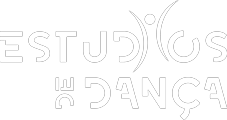Embodied Exploration of (Im)mobility Injustice
[EN]
The design of urban mobility and its required infrastructure have been crucial subjects in city-making. However, there is a lack of multi-scalar understanding of mobility, including movement as well as stillness, which links it to, on the one hand, urban territories that are politically shaped, spatially controlled, and economically driven; and on the other hand, to new territories that are emerged from everyday movement and dwelling in the city. We believe that the latter forms of (im)mobility in cities and experiences of inequalities in everyday life requires an interdisciplinary experimental approach beyond engineering ways of thinking and designing for mobility.
Through a series of movement workshops with spatial and choreographic practitioners (organised in September and October 2021) Theatrum Mundi explored how new forms of interdisciplinarity between city-making and dance-making can help engender care for bodies, both human and non-human, as a response to injustice and unsustainability in urban movement. The activities took place in different forms of public realm, whose publicness were challenged and transformed temporarily through the presence and movements of bodies. From streets to peripheral natural spaces, dancefloors and semi-public courtyards, the bodies appropriated the space and levels of accessibility of these spaces and infrastructures through their presence among others, resitting the regulations and offering alternative forms of togetherness.
The workshops focussed on three major urban issues that affect the (im)mobility justice in three European cities. Each workshop took place in two-days with an average number of twenty participants per lab. In London, the impact of power dynamics embedded in the built environment [in both material and immaterial forms] was explored, revealed and resisted through navigating self, identity and the urban setting. In Paris, through the concept of ‘rewilding’ the rights of ‘others’/non-humans were explored through ways of resisting urban regulations and creating ‘wild’ spaces. In Lisbon, the topographies of the city and its infrastructure were reclaimed through celebrating diversity of bodies and their micro-relationships with the urban setting.
Such choreographic thinking can transform the role of embodiment in urban research, foregrounding the connection between the ‘inside’ and ‘outside’ of the urbanist as a subject in a landscape, challenging highly objective and euclidean ideas of spatial design wrapped up in traditional birds-eye cartographies.
Elahe Karimnia, PhD (Advisor at Theatrum Mundi. Lecturer at University of the West of England)
[EN]
Elahe Karimnia is an advisor and former associate at Theatrum Mundi, a research centre that links architecture, urbanism, and the arts to expand on the ways public lives are understood and designed in cities. Elahe’s research is at the intersection of spatial practices and critical theory, experimental urbanisms and interdisciplinary approaches in designing publicness. She is a Lecturer at University of the West of England, a practiced architect and urban designer from Tehran, with a PhD in Planning from KTH University, Stockholm.
